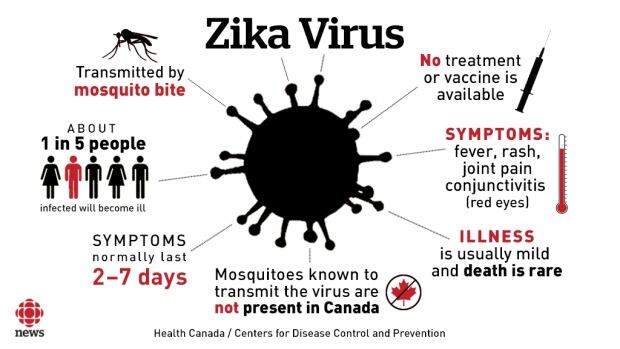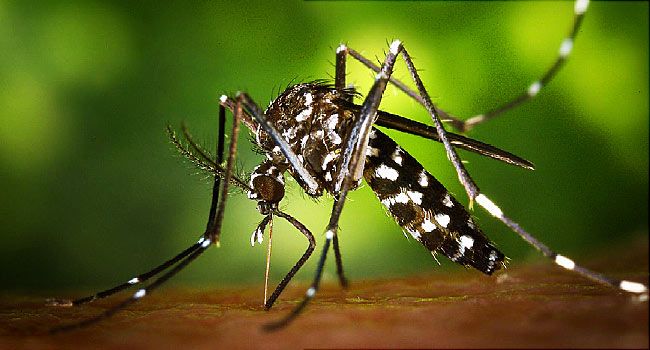Mosquitoes are pesky little creatures, nay blood-sucking monsters. Not only do they cause red itchy bites, but they also spread many diseases, like malaria, yellow fever, West Nile virus. And now we can add the Zika virus to that ever-growing list. Humans were first recorded to contract this disease in Nigeria in 1954. Last April, an outbreak began in Brazil and has spreaded to other parts of South and North America.

In most cases, people infected won't even know it because they won't experience any symptoms. If they do, many of them are similar to the flu: fever, muscle pain, headache, rash, and conjunctivitis. The good news is that most of the times the symptoms are mild and will only last for several days to a week. Once a person contracts the Zika virus, he or she will unlikely get infected again. Unfortunately, there is bad news. Pregnant women who contract the Zika virus can cause their babies to be born with microcephaly--"a birth defect where a baby’s head is smaller than expected when compared to babies of the same sex and age." This results in babies having smaller brains, leading to side effects such as hearing loss, vision problems, developmental delay. There is risk of getting Guillain-Barre syndrome, an autoimmune disorder in which the body's immune system attacks the peripheral nervous system. Although there has only been one recorded case in the United States, the CDC is still investigating the link between the two, and they believe that "GBS is very likely triggered by Zika in a small proportion of infections."
Researchers have not yet created a vaccine or medicine to prevent or treat the Zika virus, so the only way to treat it is similar to treating the flu. Drink plenty of fluids and get plenty of rest and take acetaminophen-containing drugs to reduce fever. However, if a person is pregnant and shows any symptoms of the Zika virus within two weeks of traveling to a place where it has been reported, she must see a doctor immediately.
The best way to avoid getting the Zika virus is to  prevent mosquito bites. Interestingly
prevent mosquito bites. Interestingly
enough, mosquitoes that spread it bite mostly during the daytime. Some tips would be to wear long sleeved shirts and long pants, spray on insect repellent, and steer clear of stagnant waters because they are great mosquito breeding grounds. The US is likely to be at risk for a Zika outbreak and the first step to fighting this disease is prevention.
 prevent mosquito bites. Interestingly
prevent mosquito bites. Interestinglyenough, mosquitoes that spread it bite mostly during the daytime. Some tips would be to wear long sleeved shirts and long pants, spray on insect repellent, and steer clear of stagnant waters because they are great mosquito breeding grounds. The US is likely to be at risk for a Zika outbreak and the first step to fighting this disease is prevention.



No comments:
Post a Comment